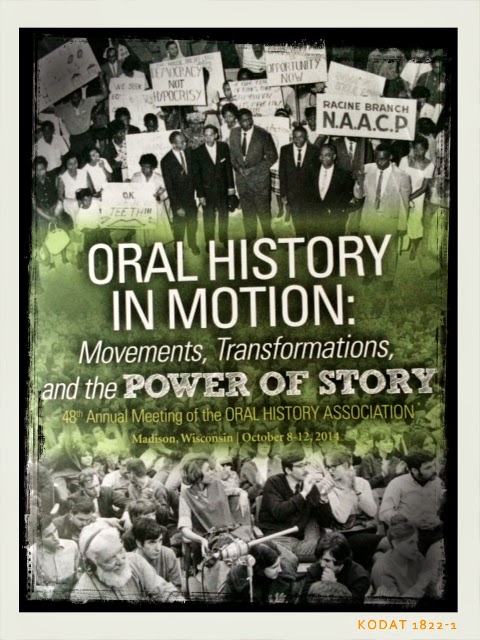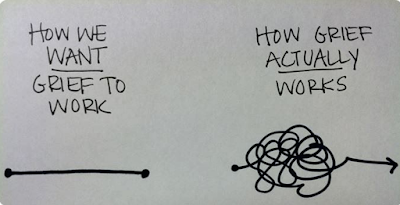Public History Initiatives
Salem State Six-Word Memoir Project
 In 2014, I organized and facilitated a student-led project that was initiated as a result of work we did in my Intro to Public History course on memory, memoir and public history. We mobilized the campus to contribute six-word memoirs that tell the story of their lives, or a defining moment in it.
In 2014, I organized and facilitated a student-led project that was initiated as a result of work we did in my Intro to Public History course on memory, memoir and public history. We mobilized the campus to contribute six-word memoirs that tell the story of their lives, or a defining moment in it.This is the first time I had a class in which 90% of the students were actively engaged in a project that took them outside the classroom, forces them to think on their feet, interact with diverse others, be creative and get things done. We learned by doing. We've marketed the idea. We reached out to classes, organizations and faculty and staff. We held bake sales and gave away cookies. Once we collected hundreds of memoirs, we decided how to curate them. And then we create installations and exhibitions all over campus --- from the library to the restrooms.
You can read six-word memoirs and find out more by clicking here.
*Exciting news! The City of Salem will conduct a city-wide Six Word Memoir Project throughout 2017 through the Salem Award Foundation. So happy about this.
Interpreting the Highlander Folk School
 My Intro to Public History and Place-Based Research Methods students at Sewanee: The University of the South have researched the history of the famed Highlander Folk School in nearby Monteagle, TN in order to develop a historical walking tour of the site that was home to Highlander from 1932-1961. (In 1961, Highlander was forced to close, the property was put into receivership, ultimately forcing its leaders to move to New Market, TN to reopen in the late 1960s.)
My Intro to Public History and Place-Based Research Methods students at Sewanee: The University of the South have researched the history of the famed Highlander Folk School in nearby Monteagle, TN in order to develop a historical walking tour of the site that was home to Highlander from 1932-1961. (In 1961, Highlander was forced to close, the property was put into receivership, ultimately forcing its leaders to move to New Market, TN to reopen in the late 1960s.)Many of the original buildings burned down or decayed. In 2013, the Tennessee Preservation Trust purchased the Library and other key parcels and are currently trying to organize local, regional and national stakeholders to preserve the site and put it to use in ways that honor its history. Working with the TPT, we engaged in the intertwined work of placemaking and historic preservation. We've found that many area residents want to know more about the site and its history and so our hour-long free tours not only bring mission-driven programming to the site but also invite local perspectives, highlight what a special historical site is in our midst, clear up confusions about allegations of Communist indoctrination and even envision a future for the site together.
When my students and I organized walking tours of the Highlander site in 2016, sophomore Tori Hinshaw took special interest interpreting the musical and theater programs at Highlander. She's a Theater and American Studies major and she and I were both moved by the regular comments from local residents about how Highlander was home to Saturday night hootenannies and hoedowns as far back as the 1930s. People would gather to play music and callers would lead square dances. Bonfires and sing-a-longs and storytelling was not something just for people who came to Highlander for a workshop. It was one of the ways the school became part of its neighborhood.
Tori decided to do a re-enactment of a Saturday night at Highlander; it took place April 22, 2017. I was her supervisor and the production person. Over 100 people came out in the pouring rain for a potluck supper and a square dance at the Highlander Library. Once again, the building rang with laughter and song. It was a great night.
The Places Project
 Around Here: the Places Project is a digital project that
collects, saves and shares stories of places that matter to the people who live
and work on and around “the mountain,” south central Tennessee’s South
Cumberland plateau. Its aim is to create a very local crowd-sourced map and
exhibit that shares knowledge and experience and reminds us why place matters,
making local and “small” heritages a
visible and shared expression of history and memory. In a region defined
by isolated micro-cultures and shaped by discourses about its identity
constructed by outsiders, the project both brings voice to local people on
their own terms and encourages a shared understanding of place that does not
deny or minimize the importance of hyper-local identities and the forces that
have shaped them. By creating a living
digital archive of place from a diverse array of community members’
perspectives — from the seventh generation local to the newly arrived student,
the Places Project contributes to numerous ongoing community initiatives on the
plateau. It will serve as a tool for grant-writing, tourism, marketing,
environmental stewardship and conversations about cultural and historic
similarities and differences among the communities and individuals who share
this mountain and together will build its future. Around Here takes one
important step toward discovering how our shared attachments to this place,
along with our diverse knowledge and experiences, can make this mountain
flourish.
Around Here: the Places Project is a digital project that
collects, saves and shares stories of places that matter to the people who live
and work on and around “the mountain,” south central Tennessee’s South
Cumberland plateau. Its aim is to create a very local crowd-sourced map and
exhibit that shares knowledge and experience and reminds us why place matters,
making local and “small” heritages a
visible and shared expression of history and memory. In a region defined
by isolated micro-cultures and shaped by discourses about its identity
constructed by outsiders, the project both brings voice to local people on
their own terms and encourages a shared understanding of place that does not
deny or minimize the importance of hyper-local identities and the forces that
have shaped them. By creating a living
digital archive of place from a diverse array of community members’
perspectives — from the seventh generation local to the newly arrived student,
the Places Project contributes to numerous ongoing community initiatives on the
plateau. It will serve as a tool for grant-writing, tourism, marketing,
environmental stewardship and conversations about cultural and historic
similarities and differences among the communities and individuals who share
this mountain and together will build its future. Around Here takes one
important step toward discovering how our shared attachments to this place,
along with our diverse knowledge and experiences, can make this mountain
flourish. Massachusetts History Alliance
I serve on the Board of Directors of the Massachusetts History Alliance. Founded in 2017 as a means of institutionalizing the network and collaboration of Massachusetts history and heritage organizations, the MHA is a volunteer-run and member-driven advocacy and capacity- building organization. We put on an annual conference, act as a communication hub and connect people to one another in the service of doing public history as well as we can, often with limited resources. In 2019, my students and I initiated a fact-finding initiative, piloting a survey with 45 area heritage organizations to discover more about our membership and their thoughts on the MHA.
The original plan was to create an exhibition using images of the objects and quotes and then contextualizing them with information about the political context that shaped refugees’ experiences.
We ran out of time and person-power and settled for something simpler:
Ultimately, we used material culture to explore several questions, including – how to represent refugees who have no material traces from home, how to tell stories without risking confidentiality and
anonymity, how to work effectively in collaborative ways across cultural differences
and how to mitigate deeply held suspicions and fears of outsiders and figures of perceived authority.
Conversation on Sewanee Signs and Symbols
My students, in 2016, hosted the Conversations on Sewanee Signs and Symbols event and prepared short presentations about three controversial memorial sites on campus, Morgan's Steep, the Edmund Kirby Smith Memorial and Hardee-McGee field.
Students had a chance to talk with each other and in a group about the meanings of symbols of the Confederacy and to discuss possibilities for continuing to think about how we come to terms with the institution's past.
It was not an easy conversation, but a very important and necessary beginning to a broader and deeper process of reckoning with race, class and all kinds of difference in our community.
My students from my Place, Memory and Identity course and I organized a series of events to celebrate local community history as part of a larger annual festival, Mountain Homecoming. We hosted a pop-up museum, a series of lightning talks from local historians on the theme, "Things You Didn't Know about Monteagle's History" and a collection booth for the Places Project. It was exciting and a little bit overwhelming to have three things going on at the same time, but in the end, it was a really good experience all around.
I think about local history as an idea all the time. I am really loving the chance to be involved in celebrating it and presenting it for a public audience who may or may not think about history. And as a learning opportunity, it is great for my students. Questions like, "How do we get people to come out/contribute/participate?" and "What is it about the past of their community do people really care about?" are much more interesting in practice than they are in theory.

In 2022, students in my first year seminar on Food, Community and Memory researched the relationships between foodways and cultural memory. As our capstone class project, students inteviewed family members, collected treasured family recipes, wrote essays about their own food traditions and published a cookbook, "Come Set the Table: A Taste of Our Differences." They gave away cookbooks for a donation to the Salem State University campus foodbank.

This project began as a class discussion in my Salem State University course: Introduction to Public History in the fall semester of 2023. The course explored themes of heritage, memory and the different ways we have of representing the past. A student in the class showed us their tattoo and told us its story. Everyone was entranced. Public history went from being an abstract idea to something to which all could all relate. “Tattoos are memorials!” We invited people to share specifically how tattoos enable them to connect to the past on their terms. “Telltale Tattoos: A Tapestry of Memory” is the result.The project is organized around themes that emerged from interviews and submissions. If you click on “Galleries” on the righthand toolbar, you will be able to navigate through the most salient categories.
Salem State Story Slam: High School Horror StoriesMy first year seminar students organized a story slam event around the theme of high school horror stories. They chose the theme, created marketing materials, advertised, recruited storytellers and audience members. Thats not all - they planned food, decorations, and collected all kinds of amazing prizes to give away. It was a good community building event that worked really well as a teaching tool for all kinds of skills first year college students might find useful. And the stories were absolutely awesome.














